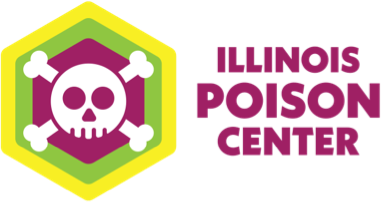Alcohol Poisoning
Drinking a lot of alcohol in a short period of time can lead to alcohol poisoning or overdose, putting one’s life at risk. Knowing the signs and symptoms of alcohol poisoning can help save the life of a family member or friend. With this knowledge, you’ll be empowered to help a loved one in need.
Call 911 immediately if you suspect someone has severe alcohol poisoning—even if the individual does not show all symptoms listed below.
Signs and Symptoms of Alcohol Poisoning
Confusion
Vomiting while passed out and unresponsive
Seizures
Slow breathing (less than eight breaths a minute)
Irregular breathing (over 10 seconds between breaths)
Slow heart rate
Clammy skin
Blue-tinged skin or pale skin
Dulled responses, including no gag reflex
Low body temperature
Passing out without being able to wake up
Drinking excessive amounts of wine, beer or hard liquor can cause parts of the brain to shut down—areas that control breathing, heart rate, gag reflex and body temperature. Someone will severe alcohol poisoning symptoms needs immediate medical attention to prevent injury and in rare cases death.
What to Do
Act fast: Call 911 immediately if severe symptoms are present. Never assume the person will sleep off alcohol poisoning.
Share what you know. Hospital or emergency personnel will likely ask about the kind and amount of alcohol the person drank and when, other drugs they took, any medications they take, allergies to any medications, and any existing health conditions.
Never leave an unconscious person alone. Someone with alcohol poisoning might fall and get hurt or might choke on their own vomit and not be able to breathe. Do not try to make the person vomit because they could choke.
Help someone who’s vomiting. Try to keep the person sitting upright—on the ground instead of a chair. If the person must lie down, turn their head to the side to help prevent choking. Try to keep the person awake to prevent them from inhaling vomit into their lungs.
The severity of alcohol poisoning and its effects can vary greatly depending on the size and age of the individual, medications or drugs they are taking, how often they typically drink alcohol, and how much they drink. Young children are particularly susceptible to the effects of alcohol.
Alcohol in Household Products
Alcohol poisoning can also occur when adults or children accidentally or intentionally drink household products that contain alcohol, such as mouthwash, hand sanitizer, perfume/cologne, hair sprays and cleaning substances.
Store personal care and household products containing alcohol in their original child-resistant containers out of sight and reach of children, ideally in a locked cabinet. Never leave open bottles, glasses or cans of alcoholic beverages out around young children and toddlers.
IPC is here to help. Call our helpline if a child ingests alcohol. Our toxicology experts are available 24 hours a day, seven days a week to answer your questions and provide treatment advice.
Call 911 immediately if an adolescent or adult has consumed too much alcohol and is having trouble breathing or cannot be awakened. For mild-to-moderate symptoms of alcohol poisoning, call IPC at 1-800-222-1222 for treatment advice.
